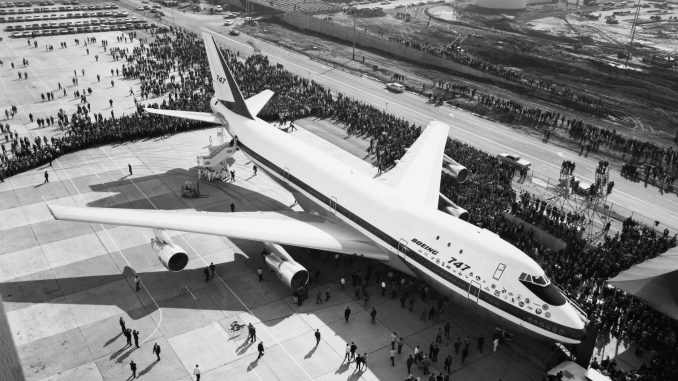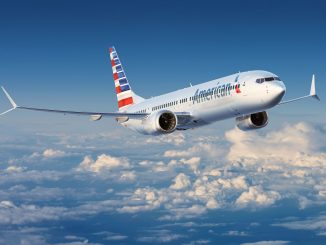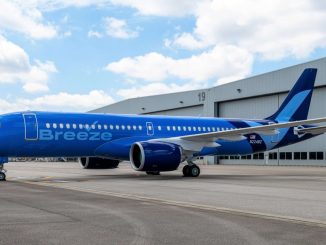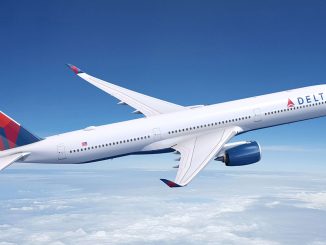
Saturday, 9th February 2019 marks the 50th anniversary of the first flight of the Boeing 747.
Queen of the Skies
After building the largest building on earth for assembly and three years of development, Boeing took off with the world’s first wide-body airliner from Everett Field on 9th February 1969. At the controls were Jack Waddell, Brien Wygle and Jess Wallick. Half a century later, the famous “Jumbo Jet”, developed by Joe Sutter, has carried over 5.9 billion passengers, and continues to do so to this day. Boeing has built 1,545 747s of all versions over its 50 year history, and while there are currently no more orders for the current passenger variant, the -8 intercontinental, the freighter version is still being built.
The Boeing 747 project came after requests from airlines (namely Pan Am’s Juan Trippe) for an aircraft that could carry twice as many passengers as Boeing’s current largest aircraft, the 707. The first prototype, RA001 went from design concept to complete prototype in just 28 months.
Believing that the future of passenger transport was in high speed supersonic jets, (Boeing was developing its own at the time: the 2707 SST), a contingency plan for the 747 was that it could also be used as a cargo aircraft. This gave birth to the 747’s distinctive hump, which was the result of moving the cockpit above the main deck, allowing the nose to open and thus granting unhindered access to the main deck cargo hold.
Pan American was the launch customer for the 747-100, and the first commercial flight took place almost a year after the first flight, on 21st January 1970 from New York JFK to London Heathrow. Over its 50 year career, the 747 has earned the nickname ‘Queen of the Skies’ by aviation enthusiasts, and is one of the very few, if not the only aircraft that is instantly recognisable to almost everyone.
As modern twin engine aircraft are more efficient, the 747’s days of carrying passengers are now numbered. The last US carrier to operate a passenger 747 ended its Jumbo Jet service in early 2018 when Delta retired its last 747-400. British Airways, the operator of the largest fleet of 747s in the world will retire its last 747 in 2023, and it is rumoured that Lufthansa is also looking to retire its newer 747-8i fleet sooner than originally planned. Regardless of how long The Queen carries passengers, she will undoubtedly remain in the skies as a freighter for a long time to come, as cargo aircraft are often in use for a longer time their passenger versions – and new 747 freighters are still being built.
Read more: The Tupolev Tu-144 first flew 50 years ago
Matt is a Berlin-based writer and reporter for International Flight Network. Originally from London, he has been involved in aviation from a very young age and has a particular focus on aircraft safety, accidents and technical details.



